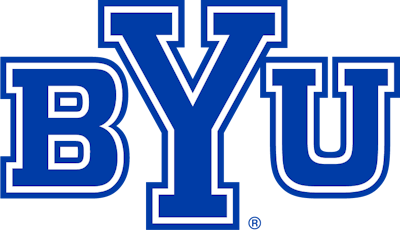
Royal Blue, Brigham Young University's officially endorsed collective, is accused of weilding NIL payments as leverage — delaying payouts, slashing salaries and leaving football players feeling disposable, according to a report by Sports Illustrated.
Per the reporting of Eli Henderson, of NIL Daily on SI, former Cougars Crew Wakley and Isaiah Bagnah recently spoke out about the significant NIL pay cuts that Royal Blue imposed on them before the 2024 season.
The issues reportedly started in December 2023 when monthly payments — usually distributed around the 15th — suddenly stopped arriving.
"According to the players, what was once a structured compensation system was abruptly gutted, leaving them scrambling just as the new season began," Henderson wrote. "Some players initially thought it was a clerical error. But as the transfer window closed without any payments hitting their accounts, many began to suspect something else was at play.
"Bagnah claims that payments were intentionally delayed until after the portal closed, effectively discouraging players from leaving since they would lose out on the money they were owed."
The Salt Lake Tribune reported that new collective leader Min Kim stated the following at a team meeting at the start of the offseason in Janaury: “I’m not here to pay your rent or bills. I’m not here for any of that. You guys are entitled, greedy, asking me for money."
Starters allegedly saw their payments slashed by over 50%, while many walk-ons were cut off entirely. Bagnah, who was in the second pay tier, had his monthly stipend cut by $700, Henderson reported.
"Players were told to sign the new agreements or forgo NIL money altogether," Henderson wrote. "To make matters worse, Wakley and Bagnah say the collective inserted a non-compete clause into the new contracts, barring players from pursuing their own NIL deals that didn’t align with Royal Blue. This restriction was particularly damaging for walk-ons like Wakley, who didn’t receive the same financial support as scholarship players."
Adding to the aggrieved football players' resentment is the fact the BYU basketball program made headlines in December for securing a reported $7 million NIL deal for No. 1 recruit AJ Dybantsa.
"The BYU situation highlights a growing concern in the NIL space; collectives, which were meant to empower athletes, are instead wielding outsized control over their financial futures," Henderson wrote. "Without transparency, oversight, or enforceable contracts, players can find themselves in situations where promised compensation vanishes overnight."
It is unclear what, if any, recourse the BYU players have.





































